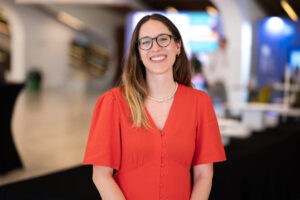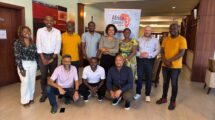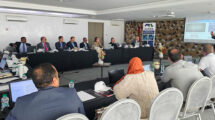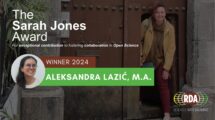For around thirty years, Yousef Torman has been working in ICT at highly reputable institutions in the higher education and scientific research sector. The focus of his work has always been to make use of technology for the development and enhancement of the lives of people in his community and beyond through better use of new technologies in education and scientific research. He worked as a Director of the Computer Centre at Jordan University of Science and Technology, then he contributed to establishing the Jordanian Universities Network, the official National Research and Education Network of Jordan, and worked as an Executive Director there.
Since 2011, Yousef has been the Managing Director of the Arab States Research and Education Network (ASREN), which works on establishing Pan-Arab e-Infrastructures dedicated to research and education (R&E).
Interview by: Yasmeen Al-Kouz (ASREN) and Silvia Fiore (GÉANT)
Yousef, you have been representing ASREN and the AfricaConnect3 project Partners in several scientific international conferences in the past months, advocating that we should move beyond “making the case for NRENs” and rather start thinking that “NRENs are making the case”. Why do you think that now is the time to rethink the work and values of R&E networks?
Throughout the years, NRENs have been struggling with many challenges making their own case towards their stakeholders, funders, and users. This has led to the joint efforts between national and regional RENs to establish the “Case for NRENs” portal which provides arguments to address stakeholders to support the creation of NRENs. Global efforts have also launched the “In the Field Stories” blog supporting the case for NRENs through featuring success stories from around the world empowered by these networks.
Today, many stakeholders and decision makers have recognised the necessity of NRENs as development enablers. For instance, NRENs were explicitly mentioned at the UNESCO’s Recommendation on Open Science, emphasising their role. The European Commission has always supported NRENs, in addition to the World Bank and other national, regional, and global bodies around the world. The outbreak of the COVID-19 pandemic has also offered the opportunity for NRENs to position themselves as critical for the member institutions to keep learning going and to cope with the pandemic.
I believe that NRENs now have the opportunity to make use of this recognition and the desperate national and regional needs for robust and reliable infrastructures and services. This is why I keep saying that “NRENs are making the case”, and they are!
In one of your presentations, you say that African NRENs will become “more than just a network.” What do you mean by that and how can they grow beyond their typical role?
I believe that NRENs have to move beyond the sole role of connectivity providers, by seeking to habitually identify and deploy new demanded value-added services, keeping up with the constantly changing needs of the stakeholders and strengthening the overall case of NRENs from within.
Furthermore, NRENs need to evolve to stand the test of time, remain relevant, be able to adapt to global trends and respond to unforeseen national, regional, and global challenges. NRENs can be owner, facilitator, enabler, operator, host, and secretariat. For example, NRENs can be the host and operator of a national harvesting infrastructure for the institutional open data repositories. NRENs can also host/lead the deployment of R&E cloud infrastructures and the adoption of national/regional “Open Science Cloud Services”.
Digital infrastructure has proven to be crucial to support research activities and science cooperation. How are African NRENs positioning themselves in this field in order to meet their communities’ needs and keep up with the evolving trends?
In addition to dedicated connectivity, NRENs and RRENs provide advanced services that enable and facilitate collaboration and include applications, tools, and access mechanisms to the R&E communities. NRENs and RRENs are key elements in adopting “Open Science” and “Open Access” to support science and science cooperation.
RRENs and NRENs should take the lead and the responsibility associated with the new role related to “Science Collaboration” through collaborating with national, regional, and global initiatives in this regard. ASREN is taking the responsibility as enabler for science cooperation and strongly promoting “Science Cooperation” through engagement with:
- Science communities to promote joint science activities,
- Policy and decision makers to encourage developing and adopting policies on science cooperation at national, regional, and global communities and
- Availing technological infrastructures with tools and services to facilitate this cooperation.
Also, ASREN featured at the Science Summit of the United Nations General Assembly 76 with a focus on Arab Science Cooperation and will be the convener of the Arab Science Summit of the United Nations General Assembly 77 in September 2022.
Recently, the three RRENs ASREN, GÉANT, and RedCLARA have started cooperating on supporting Climate Actions and Earth Observation forming a “Cooperation Triangle for Climate Action” between Africa, Europe, and Latin America.
African NRENs contribute to the United Nations Sustainable Development Goals (UN SDGs), particularly in the fields of education, gender equality, economic growth, innovation, and global partnerships for sustainable development. What impact do you think UN SDGs have on the strategic planning and branding of African NRENs as full-time innovative and leading actors in the R&E communities?
I agree that NRENs in Africa and around the world are contributing directly and indirectly towards achieving the UN SDGs, especially by supporting science and science cooperation. As achieving the UN SDGs is a global priority, I consider them as an excellent opportunity for NRENs to bring the attention of policymakers and decision makers to further support them in terms of funding and resourcing to achieve these objectives.
In this context, what do you think is the role of regional projects, like AfricaConnect3, in supporting the work of national networks for their end-users?
Since 2011, the EU co-funded AfricaConnect project has had a very positive impact on the evolution of the African NRENs, at both levels of expansion and upgrade of connectivity for NRENs and deployment of R&E services and applications. Currently in its third phase, AfricaConnect3 (AC3) includes substantial activities that focus on engagement with science communities, supporting open science, clouds, and community services, all of which contributes greatly to the benefit of end-users from universities, research centres, public libraries, and teaching hospitals.
Furthermore, through the AC3 project activities ASREN is engaging successfully with science communities in Africa, namely AfriGEO (The African Group on Earth Observations), GMES and Africa (Global Monitoring for Environment and Security), AERAP (The Africa-Europe Science Collaboration and Innovation Platform), ASFAP (The African Strategy for Fundamental and Applied Physics), DE Africa (Digital Earth Africa), and AfLS (The African Light Source).
For more information about the impact of African NRENs, visit https://africaconnect3.net
This article is featured on CONNECT39! Read or download the full magazine here







